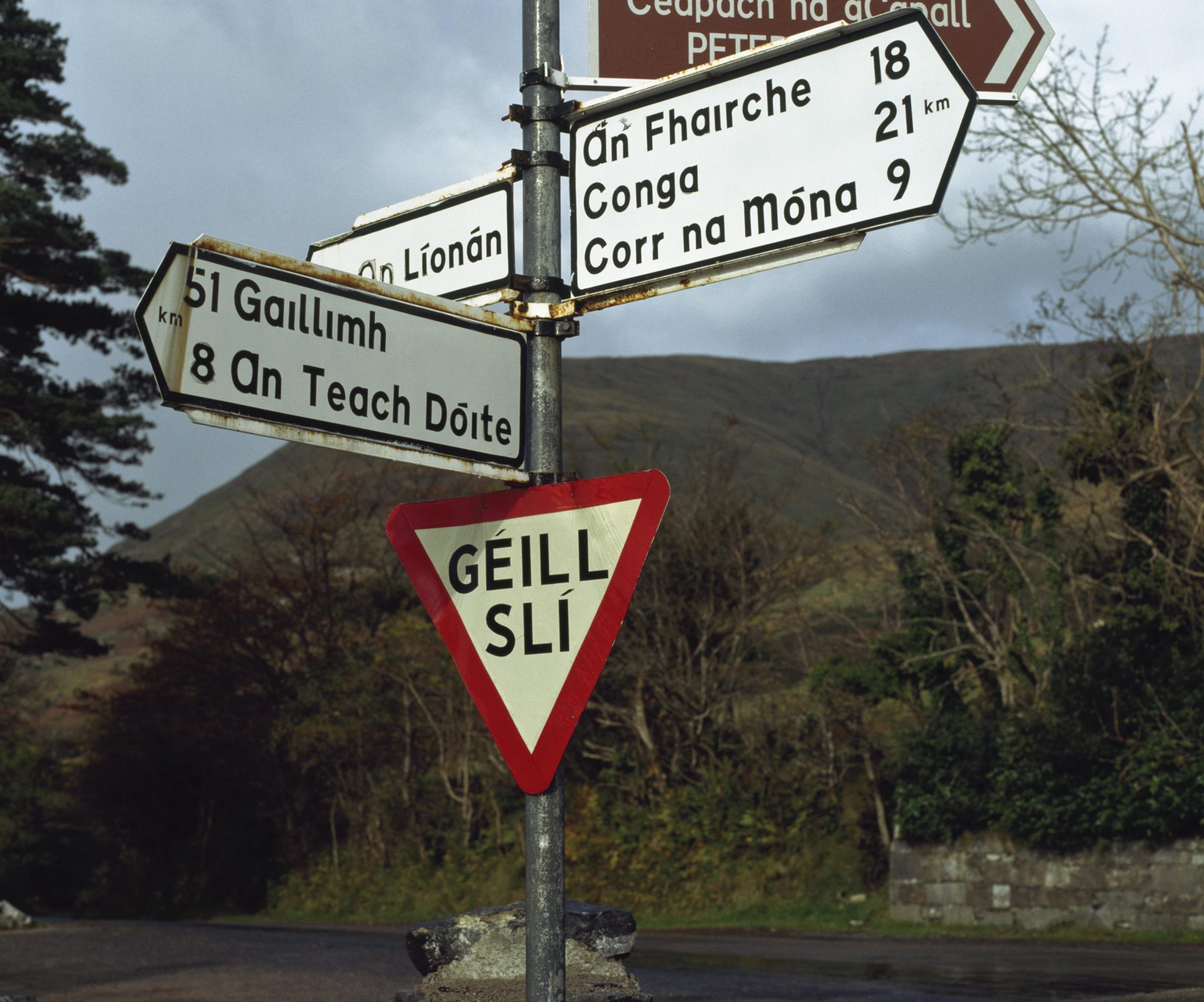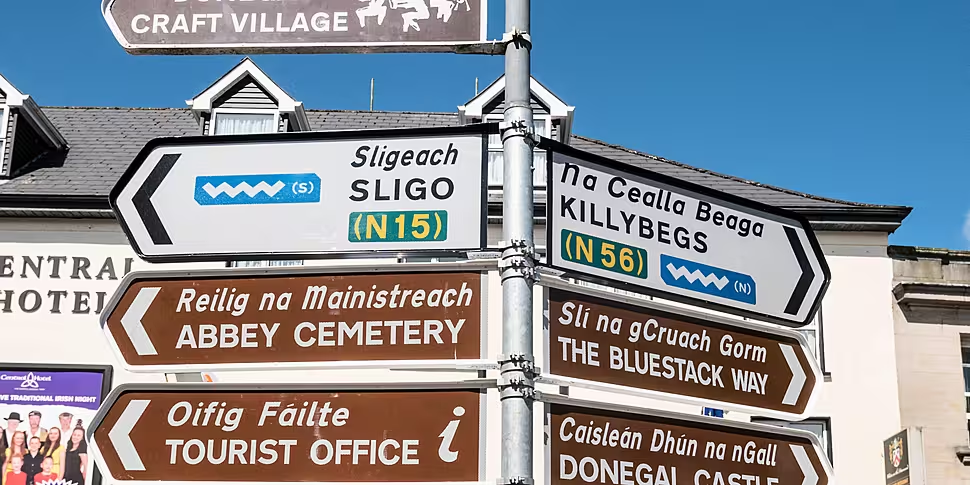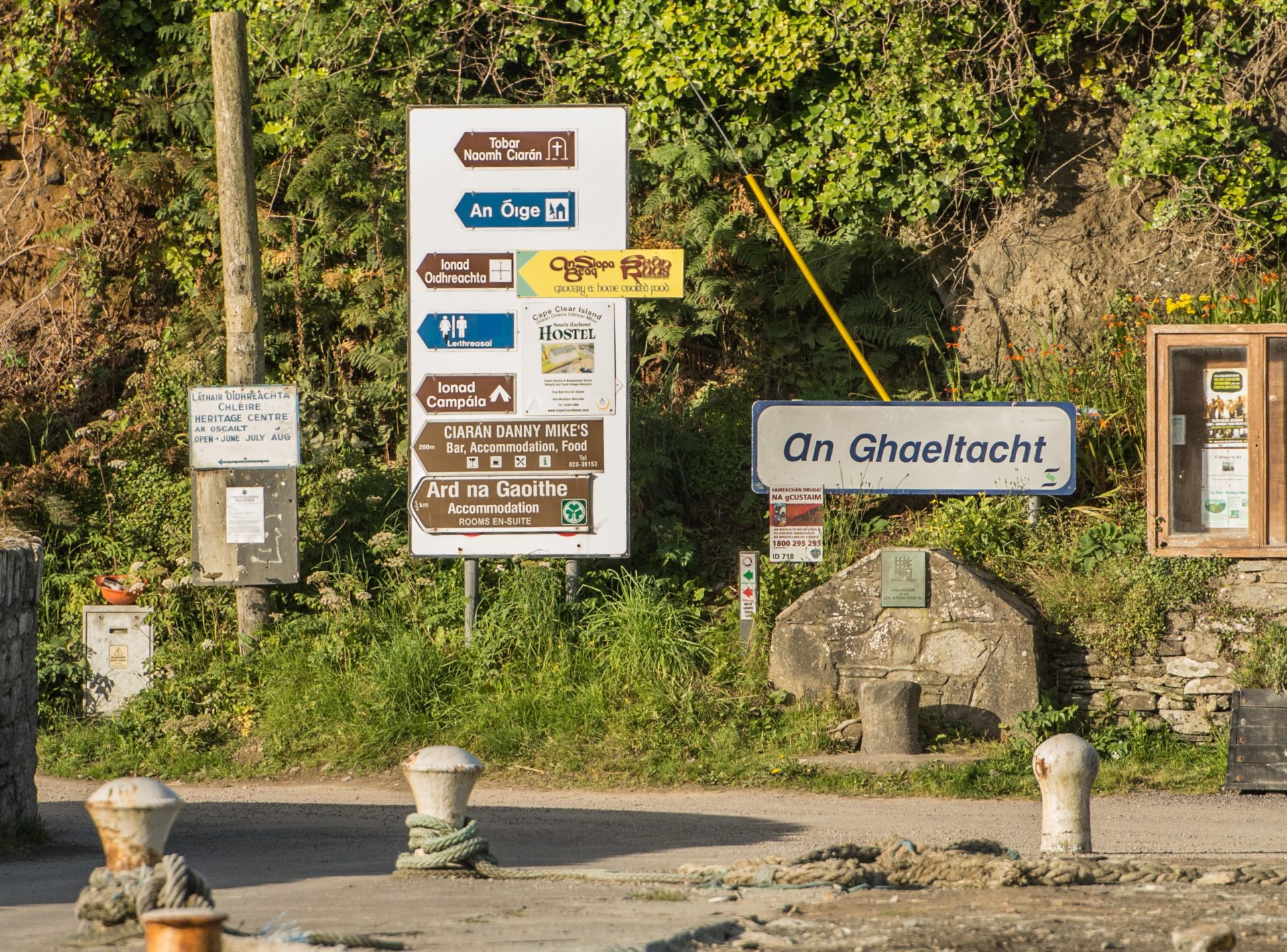Ireland’s road signs should be As Gaeilge with English translations in smaller writing, Trinity College’s new Irish Language Officer has said.
It comes after road signs across Donegal were vandalised with red spray paint used to cover up the English language names.
Local councillors have warned that the vandalism could threaten tourism in the county, with visitors confused as to where they are headed.
On Newstalk Breakfast this morning Trinity Students’ Union Oifigeach na Gaeilge Pádraig Mac Brádaigh said it is the Irish language that is under threat.
“It's not about the act of vandalism for vandalism sake,” he said.
“It's about the idea of place names in Ireland, the Anglicized forms of them, fundamentally being imposed by hundreds of years of British rule.
“Especially in a county such as Dún na nGall, which is a Gaeltacht county with a high percentage of Irish speakers.”
 Irish-language road signs in Co Galway in 2008. Picture by: The Irish Image Collection/Zuma Press/PA Images
Irish-language road signs in Co Galway in 2008. Picture by: The Irish Image Collection/Zuma Press/PA ImagesHe said Ireland’s road signs do not put Irish place names on an equal footing with their anglicised versions.
“They're italicized, they're smaller and the English place names are in block capitals,” he said.
“So, when you look at our road signs in Ireland today, the Irish place names are clearly not even really meant to be read.
“They're more just a decoration and so I think that that's much more of what the person who spray painted them meant.”
He rejected the idea that the spray paint could be damaging to tourism.
“If you look at some of the most prominent tourist areas in the country, there is a reason why tourists like to go Gaeltacht areas,” he said.
“It's because that's where they feel that the indigenous Irish culture is the strongest.
“Culture is a huge part of tourism and if you go to a lot of other countries, the language and the local place names are actually a big part of tourism.”
Gaeilge
He also argued that it is “ridiculous” to suggest that Ireland’s indigenous place names should revolve around tourism at all.
Mr Mac Brádaigh said Ireland should “absolutely” change our road signs to make Irish language names more prominent than their English translations.
“Recently we've seen such fantastic progress socially in Ireland in terms of our views towards the Irish language,” he said.
“There's been so many great things in the last couple of years - Oscar nominated movies and music and all that - but if we want to be serious about this; if we're actually serious about our language, we have to take certain steps.
“I would view that myself as a form of self-respect to our own indigenous place names.”
'Post-colonial mentality'
The Trinity Oifigeach na Gaeilge accused those who are in favour of prioritising Anglicised names of having a “post-colonial mentality”.
“We have to look at why people kind of have this uncomfortable, this discomfort with Irish place names, right?” he said.
“We're not special in Ireland. This kind of phenomenon happens all over the world. This is a symptom of a post-colonial society.
“The thing is, in Ireland, it's much deeper because in Ireland, the eradication of our language was much, much more thorough than in a lot of other countries.
“So as a result of that, we as Irish people have this kind of strange psychological hang-up about our indigenous language where we think that it's inferior to English.
“So that's kind of where that that mindset comes from.”
Donegal Cllr Ciaran Brogan told Donegal County Council this week that the vandalism was causing “huge reputational damage” for the county’s tourism offering.
You can listen back to Mr Mac Brádaigh here:










